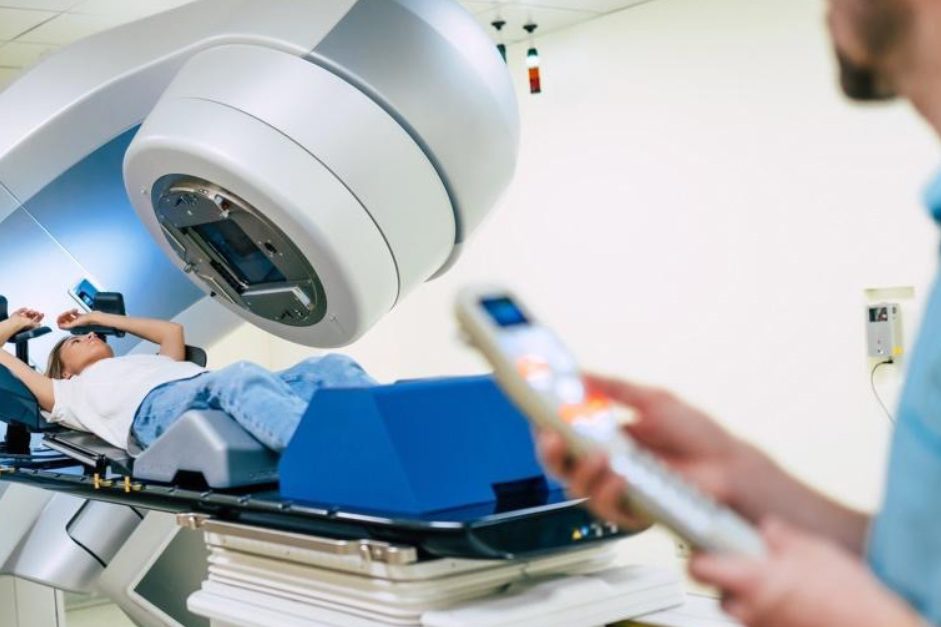There are no radiation oncologists in Dubai yet.
What is Radiation Oncology?
In the labyrinth of medical specialties, radiation oncology holds a unique place. It’s a field where physics meets human courage, a battle of light against cancer’s shadow.
Radiation therapy, at its core, uses high-energy rays. Its aim: to destroy cancer cells, shrink tumors. A fine balance, targeting malignancy while sparing healthy tissues.
Today, technology propels the field forward. Each advance refines the precision, expands possibilities, elevates care.
A radiation oncologist is both scientist and healer. They plan treatments, calculate doses, monitor progress. Their expertise navigates the fine line between eradication and preservation.
The planning phase is meticulous. Imaging techniques like CT, MRI, and PET scans map the cancer. Detailed plans are crafted, ensuring rays strike only intended targets.
The diagnosis of cancer is life-altering. Patients face fear, uncertainty. Radiation oncologists step in with a mix of empathy and science. Their support extends beyond calculations.
Radiation oncology thrives on collaboration. Surgeons, medical oncologists, pathologists. Each specialist contributes, crafting comprehensive treatment plans. Together, they form a defense against cancer.
Radiation has side effects. Skin changes, fatigue, more serious complications at times. Managing these requires vigilance, adjusting plans to balance effective treatment and quality of life.
Treating children necessitates special considerations. Growing bodies, sensitive minds. Pediatric radiation oncologists tailor approaches, minimize long-term impacts, protect development.
Globally, access to radiation therapy varies. In places like Dubai, state-of-the-art facilities offer advanced treatments. Yet, many regions struggle with resources. Bridging this gap is crucial.
Integration of AI and machine learning promises game-changers. These technologies can enhance treatment precision, predict outcomes, and personalize cancer care even further.
Every patient’s journey is unique. From diagnosis to treatment and beyond. Radiation oncologists are with them at every step, a constant presence through the tumult of cancer therapy.
Becoming a radiation oncologist demands rigorous training. Years of study, clinical practice, continuous learning. This expertise transforms into life-saving treatment plans.
Ongoing research fuels the field. Clinical trials test new therapies, refine existing protocols. Each discovery brings hope, a step closer to conquering cancer.
Post-treatment, life continues. Survivorship care plans are devised. Monitoring, managing long-term effects, early detection of recurrences. Radiation oncologists ensure life beyond cancer treatment is supported.
Patients exhibit extraordinary resilience. Their strength fuels the oncologists. Every victory, small or large, reaffirms the importance of the work, the nobility of the fight against cancer.
Not all battles end in remission. Radiation also provides palliative care. Reducing pain, improving quality of life, in terminal cases. A compassionate approach to the final stages.
Support extends beyond the clinic. Family, friends, support groups. Radiation oncologists often bridge the patient’s medical and personal worlds, fostering a holistic approach to care.
The landscape of radiation oncology is ever-evolving. Each day brings new challenges, new discoveries. The dedication to pushing boundaries remains steadfast.
Radiation oncology is a symphony of technology, humanity, and relentless hope. It’s about wielding the power of radiation to fight a formidable foe. Through every beam and calculation, radiation oncologists are tireless warriors, steadfast in their mission to transform fear into hope, darkness into light. In this intricate dance of photons and particles, they champion life, one patient at a time.


 then "Add to Home Screen"
then "Add to Home Screen"